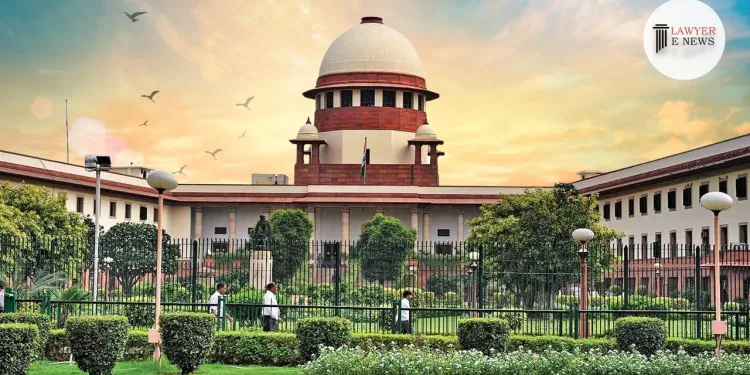Failure to Provide Documents and Afford Reasonable Opportunity Breaches Natural Justice: Supreme Court Rules in Excise Duty Adjudication Case

The Supreme Court recently addressed significant legal issues pertaining to excise duty adjudication processes and the necessity of upholding principles of natural justice. This arose in the context of a civil appeal by M/S Madura Coats Private Limited against a High Court order that set aside a decision of the Customs, Excise, and Service Tax Appellate Tribunal (CESTAT) and remanded the matter for a fresh hearing. The apex court’s intervention highlights critical aspects of procedural fairness in administrative adjudications under the Central Excise Act, 1944.
Facts and Issues Arising in the Case
The appellant, engaged in the manufacture of various yarns, was accused of evading duty payments, leading to multiple rounds of litigation and adjudication. Initially, two show cause notices were issued to the appellant, which, after several rounds of tribunal and court hearings, culminated in the matter being brought before the Supreme Court. The core issue revolved around the non-furnishing of certain documents referenced in the show cause notices, alleged to be critical for the appellant’s defense, and whether this omission breached principles of natural justice.
Court’s Detailed Assessment
Document Provision and Natural Justice:
The Court observed that the failure to provide the appellant with specific documents initially referenced in the show cause notices was a crucial fault on part of the adjudicating authority. Justice Aravind Kumar noted, “It has been asserted by the company’s representative that they want to rely upon all documents not relied upon in the SCNs… However, it appears, no more opportunity was given to the party and learned Commissioner chose to pass the impugned orders on 28.02.2006. We have found an element of denial of natural justice in these proceedings.”
Adjudication Process and Legal Directives:
The Tribunal’s previous directions to furnish certain documents and to allow the appellant sufficient time to prepare their defense were highlighted as integral to ensuring fairness in the adjudication process. The Supreme Court underscored the importance of adhering to these directives, criticizing the subsequent adjudications for their haste and lack of comprehensive consideration.
Impact of Non-Compliance on Adjudication:
The apex court discussed at length the implications of non-compliance with procedural requirements. The judges pointed out that such failures not only undermine the fairness of the proceedings but also impact the substantive rights of the parties involved.
Decision and Conclusion
The Supreme Court disposed of the appeals by affirming the High Court’s decision to remand the matter for fresh adjudication. However, it underscored specific directions to ensure compliance with procedural fairness, allowing the appellant to demonstrate any prejudice caused by the non-furnishing of documents. The Court maintained, “Accordingly, the appeals stand disposed of with no order as to costs.”
Date of Decision: 25th April 2024
M/S Madura Coats Private Limited vs. The Commissioner of Central Excise and Anr.






